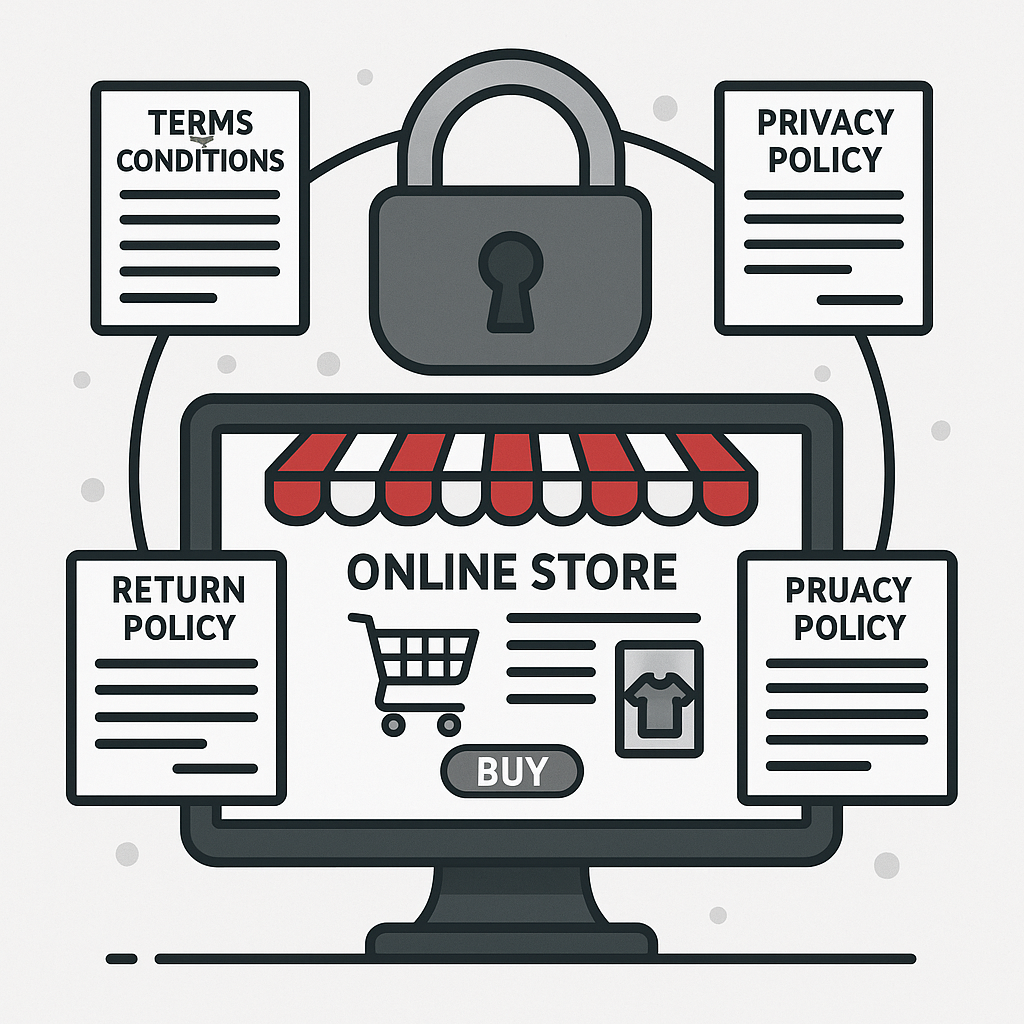
Introduction
If you have decided to open an online store, one of the most important aspects that you cannot overlook is the legal security of your website. Having correctly structured legal pages is not only fundamental to comply with legal regulations, but it is also crucial to gain the trust of customers.
In this article, we'll explore the essential legal pages that every e-commerce site should have. From privacy policy to terms and conditions, we'll explain what these pages should contain and why they are necessary to protect both your business and your customers.
Table of Contents
Privacy Policy
What is: The privacy policy is a page that explains how the personal data of users who visit your website is collected, used and protected.
Why it is importantCompliance with privacy regulations such as the GDPR in Europe or the Personal Data Protection Act in other jurisdictions. In addition, it helps build trust with users by assuring them that their information is protected.
Essential content:
What data is collected (name, email, address, etc.)?
How the data is used (e.g., to process purchases, marketing, etc.).
Security measures that protect customer data.
ExampleIf your store collects emails to send offers, you must specify how this data will be stored and used.
Terms and Conditions
What isTerms and Conditions: The Terms and Conditions are the rules that govern the use of your website and the purchase of products. This page sets out the rights and responsibilities for both you and the user.
Why it is importantProtect your business from potential litigation and ensure that users understand the rules of purchase, the return process, payment terms, among others.
Essential content:
Definition of terms of use: what users can and cannot do.
Purchase process: how users complete transactions, payments and shipments.
Return policy: establishes the conditions under which products may be returned.
Example: If a customer buys a product and decides to return it, the terms and conditions must specify within what period and under what conditions the return is accepted.
Return policy
What isReturn policy: The return policy sets out the conditions under which products can be returned or exchanged. It is one of the most important legal pages for buyers.
Why it is important: Offering a clear return policy improves the customer experience and increases trust in your online store.
Essential content:
Deadline for return (e.g., 14 or 30 days).
Requirements for the product to be returned (in its original condition, unused, etc.).
Return procedure, how to contact and how to receive a refund or exchange.
ExampleIf you offer free shipping, you must clearly indicate it on this page to attract more customers.
Cookie Policy
What is: The cookie policy informs users about the use of cookies on your website. Cookies are small files that are stored in the browser to improve the user experience, but they also collect data.
Why it is important: Complies with regulations such as GDPR and ensures that users are informed about the type of cookies you use and how they can manage them.
Essential content:
What cookies are used on the site (technical, analytical, advertising, etc.).
How users can manage cookies in their browser.
ExampleWhen a user enters your online store, a pop-up window should show them that your site uses cookies and allow them to accept or reject their use.
Terms and conditions of shipment
What is: The shipping terms page should detail shipping options, costs, estimated delivery times and international shipping policies if applicable.
Why it is importantHelp customers understand the shipping process and what they can expect from your store in terms of delivery and costs.
Essential content:
Shipping methods available (standard, express, international).
Shipping costs according to location.
Estimated delivery times.
ExampleIf you offer free shipping, you must clearly indicate it on this page to attract more customers.
Protect your online store with complete and customized legal pages.
ClickPanda offers you tools to ensure that your store is compliant and provides a safe shopping experience for your customers.
Conclusion:
Legal pages are essential for the safe and professional operation of your online store. They not only protect you as an entrepreneur, but also build trust with your customers. Make sure you have updated and well-structured privacy policies, terms and conditions, return policy and other legal pages to comply with regulations and offer a transparent and secure service.
If you want to learn more about how to protect your business against cyber threats and maintain the security of your communication, we invite you to read our article about What are the main threats to corporate email?








